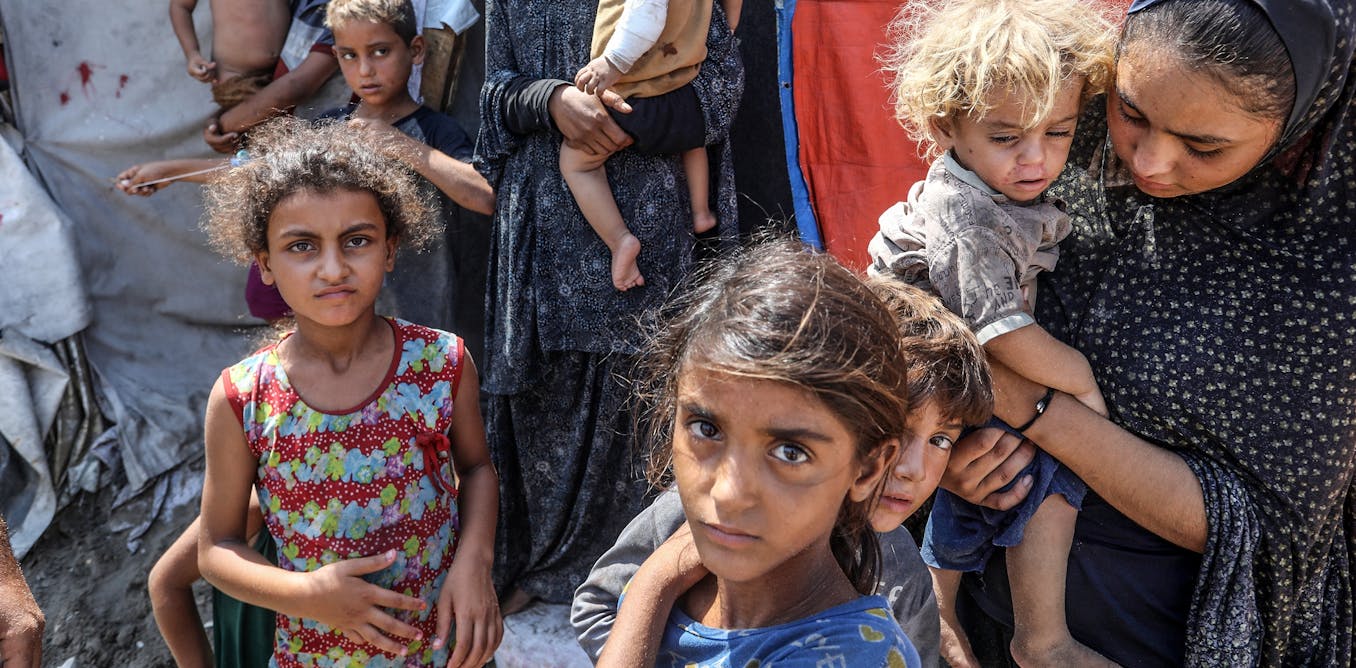UN Warns Time Running Out as Gaza Faces Catastrophic Hunger
UN warns time is running out to prevent a catastrophic famine crisis in Gaza, as new data reveals a sharp rise in starvation, hunger-related deaths, and widespread malnutrition. According to United Nations agencies, Gaza’s food system has crumbled to historic lows, leaving over half a million people on the brink of famine. The warnings come at a time when aid access remains restricted and food supplies continue to dwindle despite promises of support.

Since the military operations intensified in March, humanitarian agencies including the World Food Programme (WFP) and UNICEF have reported the worst levels of food consumption and nutrition seen since the conflict began. With two out of three famine indicators already breached, conditions on the ground have become increasingly desperate. A staggering 39% of the population reportedly goes entire days without any food, and acute malnutrition has spread rapidly—particularly among children.
UN Warns Time Running Out Amid Surging Starvation and Aid Blockage
In its latest assessment, the UN confirms that nearly a quarter of Gaza’s total population now lives in famine-like conditions. These figures are not just statistical alarms—they reflect an urgent humanitarian emergency that continues to spiral while the world debates action. The collapse of Gaza’s health infrastructure has made it even harder to collect reliable data, but the signs are unmistakable: hunger is killing people every day.
While Israel claims to have increased aid distribution recently, logistical roadblocks and damaged infrastructure have made it difficult to deliver enough supplies to those in need. Calls for large-scale intervention have grown louder, with international leaders like Germany’s Chancellor Friedrich Merz and former US President Donald Trump demanding faster, unimpeded food delivery.

Trump, who remains a vocal supporter of Israel, admitted earlier this week that he disagrees with Prime Minister Benjamin Netanyahu’s denial of starvation in Gaza. He has publicly proposed the idea of setting up secure food centers in the region to ensure equitable distribution, stressing that children are already starving and more immediate action is needed. Trump also noted that Israel should help oversee the delivery to ensure transparency.
WFP Executive Director Cindy McCain added to the urgency, saying, “The unbearable suffering of the people of Gaza is already clear for the world to see. Waiting for official confirmation of famine before responding is unconscionable.” Her statement echoes the frustration many humanitarian workers feel as diplomatic inaction costs lives daily. Also Read: Early Onset Infertility in Young Couples: 15% of IVF Patients in Kolkata Now Under 30
Despite isolated efforts, such as minor increases in aid over the weekend, the reality is that Gaza needs massive, daily food relief—and fast. Without consistent access to large-scale supplies, the situation is likely to escalate beyond recovery. UNICEF also pointed out that the situation is especially severe for children, many of whom are already severely malnourished and vulnerable to disease due to hunger.
There is a growing consensus among aid organizations that food aid must flow into Gaza continuously, without delays, checks, or obstructions. They argue that political negotiations should not stall what should be a basic human right—access to food. With over half a million people at risk, and starvation-related deaths rising, each passing hour matters.
UN Warns Time Running Out What the World Must Act on Now
The situation in Gaza is not a distant warning; it is a present disaster. Aid groups continue to plead for the global community to act, not tomorrow, not next week—but now. As reports of mass hunger, child deaths, and community collapse increase, the consequences of delay are becoming irreversible.
Conclusion:
The United Nations’ message is painfully clear—time is running out. Without immediate, uninterrupted food aid at scale, Gaza will face a famine of devastating proportions. The numbers, voices, and conditions all point to one truth: waiting any longer will cost countless more lives.

